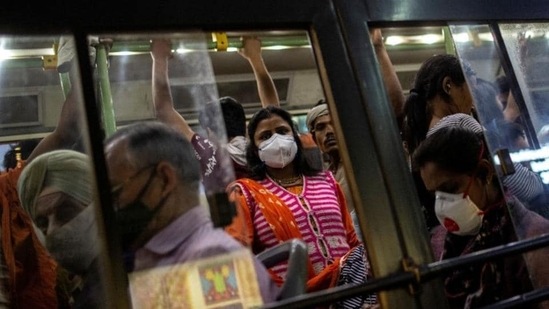Mobility as a key driver of greater women’s freedom
Inclusive access to mobility must consider a rights-based issue, rather than a protection-based one, so that women can become more independent.
As women get back into the workforce in towns and cities, with the pandemic hopefully receding, the accessibility to safe public transport spells the freedom to choose livelihoods. Buses, the predominant mode of public transport for women in larger cities, are overcrowded, inadequate, and often unsafe for women. In rural areas, women are left to their own devices or have to depend on male family members for transport, something that is not readily available.

Sonal Shah, founder of the social enterprise, The Urban Catalysts, says that women bear a disproportionate burden of gender-blind transport systems, especially resource-poor women.
Research by the enterprise shows that women tend to spend a higher proportion of their income on transport than men. Any woman who has travelled in a bus will attest to the fact that seats reserved for women are often occupied by men who refuse to vacate them. Sexual harassment also holds women back, in addition to issues like infrequent bus schedules catering to women’s travel destinations, availability of real-time information as women may not have access to smartphones, accessible, well-lit pedestrian walkways, safe crossings, and lighting at bus stops. The lack of safe public transport prevents women from accessing all the employment opportunities that may be available, especially jobs which involve late hours.
In a recent study conducted by the social enterprise Safetipin in Bhopal, Gwalior and Jodhpur, 95% of the women respondents felt unsafe while using public transport, and 29% said that they had experienced sexual harassment in public transport in the past year. The lack of safe mobility choices impacts women’s access to opportunities. Girls are often forced to drop out of higher education and women take up low-paying jobs near their homes due to fear of sexual harassment in public transport. Women resort to strategies such as travelling in groups and avoiding certain routes.
With unpaid household chores and care work being disproportionately shouldered by women, they will tend to work closer to home or opt out of the workforce. Ajmeri, a domestic worker in the National Capital Region, says that with little to no public transport from her semi-slum dwelling, she has to walk to work in inclement weather and risk her personal safety in the evening.
Kalpana Viswanath, co-founder of Safetipin, says that safe public spaces and mobility are central to ensure that women enjoy their “right to the city”. We need public transport that acknowledges and responds to the everyday travel needs of women.
Initiatives such as travel subsidies could help informal women workers. The Karnataka government’s construction welfare board provides free annual bus passes for 1,000 workers, including 200 women workers. A free bus pass would enable saving up to ₹12,600 in a year per person. This practice could be extended across India, as all the states have welfare boards.
However, women vendors say buses don’t stop for them as there is resistance to their boarding with their goods. A redesign of women-only bus operations with a large fleet of smaller buses that have drop-off points close to women’s travel destinations may improve ridership and accessibility.
Sonal Shah argues that, “Cities need to collect gender-disaggregated data on women’s mobility, travel behaviour, the experience of safety, sexual harassment, and infrastructure and service issues related to public transport to address this more effectively.” Inclusive access to mobility must consider a rights-based issue, rather than a protection-based one.
lalita.panicker@hindustantimes.com
The views expressed are personal
Continue reading with HT Premium Subscription





